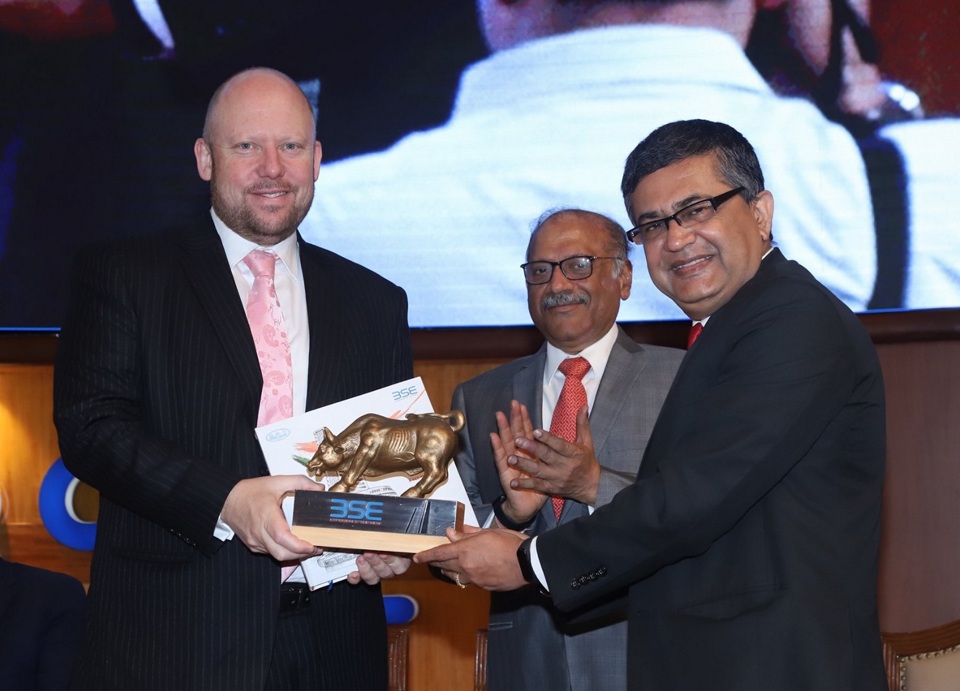Take Five: “People in certain sections of the society … continue to have repressive mindsets”
Date:


Ashishkumar Chauhan is Managing Director and CEO of Bombay Stock Exchange (BSE), Asia’s oldest exchange and the world’s largest exchange, with 5,000-plus listed companies. He is credited with reviving the exchange and completing its initial public offering, which was oversubscribed more than 51 times. On International Women’s Day on March 8, Bombay Stock Exchange signed the Women’s Empowerment Principles which UN Women and United Nations Global Compact developed to guide businesses on improving the situation of women in the workplace. He was interviewed by email.
Why is it important to promote women’s economic empowerment?
I am of the firm belief that no country can progress if it isolates half its population. India with a population of almost 650 million women can only achieve true economic progress with involvement of women in all areas on equal or better terms.
Women bring unique talent, ideas and sensibilities to the workplace. Companies with greater gender equality in their workforce and top management reap a variety of benefits. Such companies are better able to attract and retain women talent, to motivate their women workers, to understand and respond to the needs of women customers, and address complex problems by incorporating more diverse views.
But even without bringing in the economic viewpoint, I believe that it is one of sacred rights and a key element in the codes of conduct that our ancient societies prescribed for themselves more than 3,000 years ago. When our founding fathers drafted our constitution, they ensured that its principles and provisions duly emphasized women’s rights and equality.
What does it mean for your stock exchange to sign the Women’s Empowerment Principles, and to be an advocate for women’s economic empowerment?
As a quasi-regulatory body, stock exchanges can deeply influence the way listed companies improve practices, develop public-private partnerships, and invest resources to achieve gender equality and long-term financial value.
In what ways can stock exchanges influence their markets and listed companies to become more gender-inclusive and what concrete steps is your exchange already taking?
In India, the Companies act of 2013 mandates listed companies to have at least one woman director on their boards, making India one of the two countries in the world to have this requirement. A study of the board composition of over 3,000 listed companies on BSE shows that 18.2 per cent of all directors are women as of December 2019. Although impressive, India lags behind the United States in this regard, where representation of women on S&P 500 boards stands at 26 per cent of all directors. However, I am confident that India will surpass the U.S. in this regard.
BSE is among the trendsetters. Way back in 2001, BSE had a women president at its helm when women heading companies was unheard of. Almost 25 per cent of our employees are women; so are two of eight directors on our board.
What are the challenges to improving gender diversity on boards and in senior management among listed companies and how could we address them?
There are still some people in certain sections of the society who continue to have repressive mindsets. Women in India face issues like difficulty in obtaining loans from banks owing to the lower confidence in women’s business capabilities, low level of acceptability in the business fraternity, low visibility, low level of education, and shortage of technical skills.
BSE also supports capacity-building and awareness-raising through events focused on women’s economic empowerment. Examples include Women and Wealth, a Bloomberg TV India event attended by more than 200 women at middle or senior levels across various Industries, a HeForShe event with UN Women, an event on Empowering Adolescent Girls co-hosted with a local NGO [non-governmental organization], and BSE’s participation in all three years of Ring the Bell for Gender Equality. BSE Institute, our training arm and subsidiary, offers a variety of training programmes for women.
As a male gender advocate yourself, how can men play a role in changing discriminatory norms in the business world?
Male leaders in government institutions, the corporate sector, trade unions and non-governmental organizations can provide positive role models on gender equality by introducing fair employment practices, anti-discrimination measures and gender-inclusive decision-making, and by combating sexual harassment in the workplace.